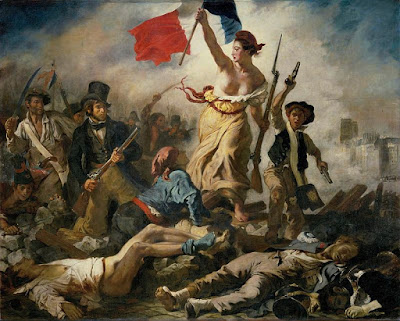From every continent, populism appeared in many news, from Donald Trump making his ridiculous statements to Britain leaving the European Union, and to Rodrigo Duterte calling the death of drug users and pushers. With all these news categorized as populist, what is populism?
Populism
rooted from the word popular and popular meant the majority of the people – the
masses. Thus, Populism captured the mood of the masses, their desires and
emotions. Desires for security and prosperity and emotions such as frustration,
anger, and fear. Thus, populism embodies
this emotions of the people.
Politicians
and parties saw the rise during times of great crisis where the emotions of the
people ran high. They then stand up for the masses against perceived threats or
rather an establishment that failed to address the ills of the society. Hence,
populism stood against the establishment, whether political, economic, or even
religious resulting to populist politicians becoming radical, demagogues, and
revolutionary even.
In
populism, “it’s the belief that the will of ordinary citizens should prevail
over that of a privileged elite” written in the article A Brief History of
Populism. It placed importance to the interest of people regardless of
political idea, either left or right. Unlike other political –isms, it has no
concrete tenants and David Marquand could summed up “Populism is not a doctrine
or a governing philosophy, still less an ideology. It is a disposition, perhaps
a mood, a set of attitudes and above all a style.”
History
had been filled by populism. Moreover, it changed history. It brought Julius
Caesar to power and challenged the Roman Republic, giving his relative Augustus
the power base to establish the Roman Empire. The Reformation saw populism with
the rise of Protestant movements that challenged the established Roman Catholic
Church. Then there was the French Revolution where Robespierre and the Jacobins
called for blood and the total reformation of France to eradicate the Ancient
Regime of absolute monarchies. In the middle of 19th century, Karl
Marx contributed to Populism’s rise with his notion of class struggle between
Bourgeoisie and Proletariat. This inspired Vladimir Lenin to rally the masses in a
populist movement that toppled down the Tsarist Regime and gave rise to the
greatest communist experiment of the 20th century.
 |
| Lenin Delivering a Speech |
Though
communist Russia ended, populism remained alive to this very day.
Globalization, rising income inequality, and economic crisis resulted to
questions and frustrations from the masses. The 2007 Global Recession led to
rise in unemployment. Joblessness had been blamed on globalization that allowed
companies to relocate jobs to other countries for lesser cost. Financial
problems and public debt led to austerities and budget cuts that frustrated the
public of their political establishments. Then crime rose as radical terrorist
crossed borders posing as immigrants exploiting the openness of countries.
Frustration, anger, and fear led voters to embrace the words of populist
politicians who with their bombastic words and promises show them as men or
women of action rather than politics and talk. Many countries welcomed populist
politicians at the helm of their countries. Only history would be able to tell
whether populism would help the world to become better or otherwise.
Bibliography:
The Week Staff. “A
Brief History of Populism.” In The Week. Accessed on April 1, 2018. URL: http://theweek.com/articles/579018/brief-history-populism
Marquand, David. “The
People is Sublime: The Long History of Populism, from Robespierre to Trump.” In
NewStatesman. Accessed on April 1, 2018. URL: https://www.newstatesman.com/politics/uk/2017/07/people-sublime-long-history-populism-robespierre-trumphttps://www.newstatesman.com/politics/uk/2017/07/people-sublime-long-history-populism-robespierre-trump
Munro, Andre.
“Populism.” In Encyclopedia Britannica. Accessed on April 1, 2018. URL: https://www.britannica.com/topic/populism


No comments:
Post a Comment